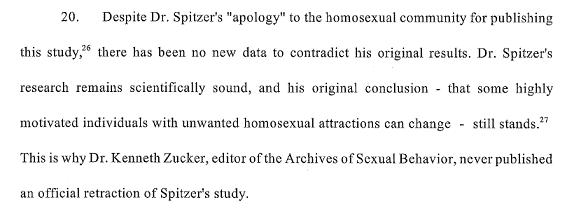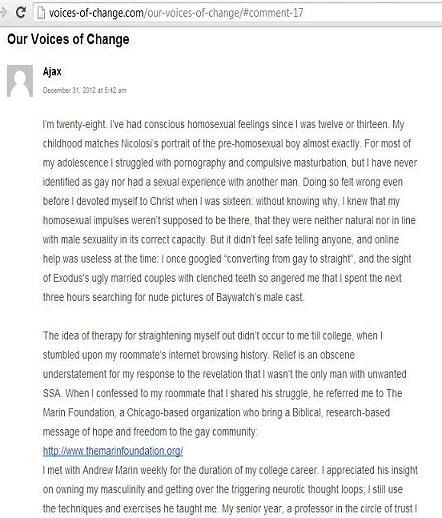In 2003, I spoke at the annual conference of the National Association for Research and Therapy of Homosexuality (NARTH) on public opinion and homosexuality. In that talk, I noted that favorable shifts in attitudes toward gays were associated with having a gay person as a friend or family member. I added that increased public support for gays would mean that more people would develop friendships with gays, thus building up a momentum for public acceptance of gays and bisexuals. Seeking to make the talk relevant to the audience, I predicted that the public would become more skeptical and critical of various NARTH claims about homosexuality as a consequence of more people knowing and accepting gays as friends. I noted that as the non-gay population became more aware of gays in their families and as friends, they would doubt the claims that gays are incapable of happy lives and/or that their homosexuality derived from problematic family relationships. People will know by their own gay friends and family members that the stereotypes are not generally true. Thus, for NARTH to survive, I suggested that the group incorporate biological research, and stop promoting the view of homosexuality common to reparative therapists (e.g., distant same sex parent, overbearing opposite sex parent).
As I continue to document here, NARTH didn’t listen.
My history with NARTH is for another post, but I was reminded of that 2003 talk and the negative reaction to it from NARTH and eventually from Exodus when I read this attributed to Alan Chambers:
But the belief in “reparative therapy was one of the things that led to the downfall of this organization,” Chambers said in an interview, noting that Exodus in recent years redirected its focus to helping men and women work through their sexual identity.
“I am sorry we promoted sexual orientation change efforts and reparative theories about sexual orientation that stigmatized parents,” Chambers said in the announcement. “I am sorry that there were times I didn’t stand up to people publicly ‘on my side’ who called you names like sodomite—or worse.”
Alan is sorry about the problems caused by these therapies but he apparently also sees the damage done to the organization as well.
Alan is on HuffPo Live now…

